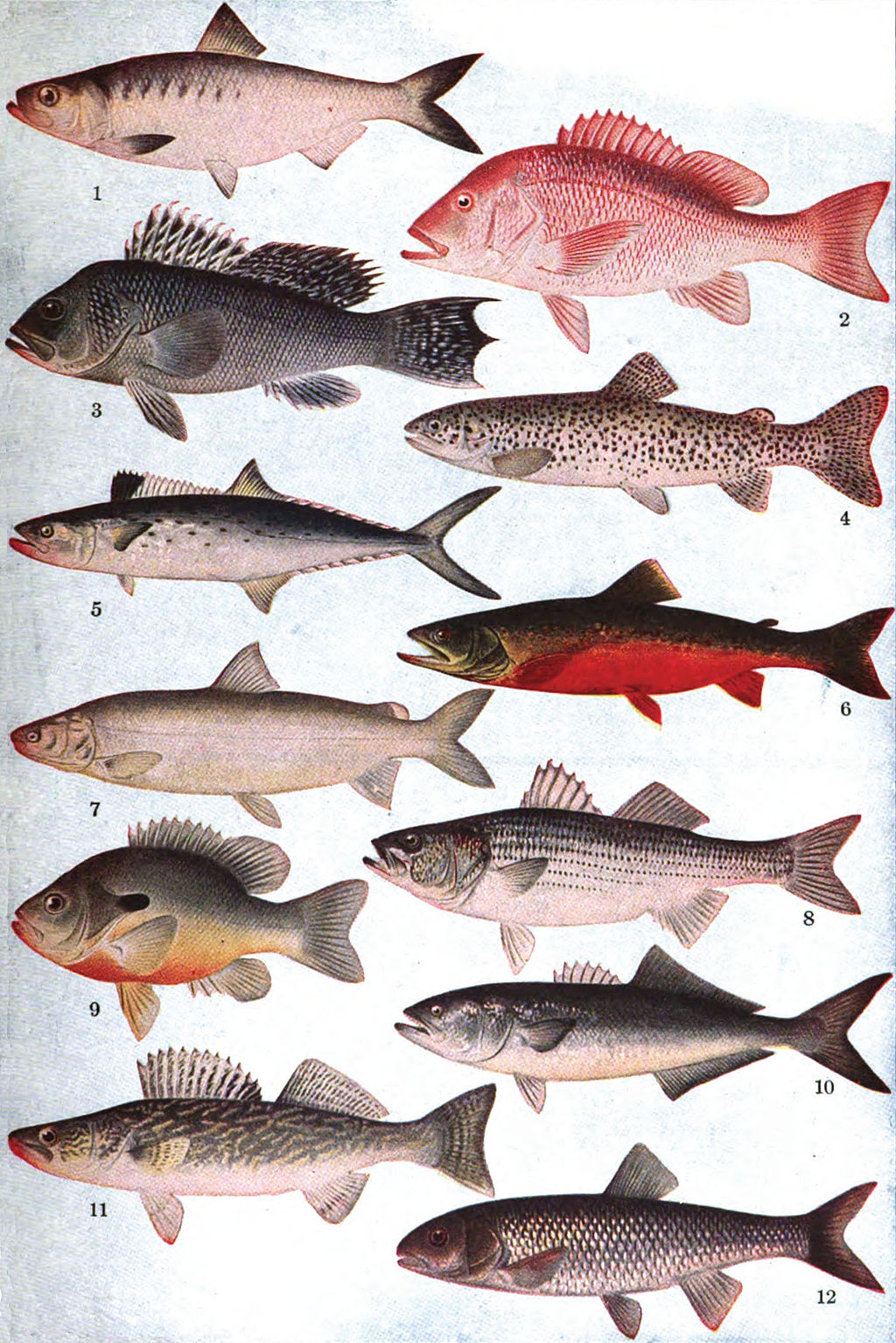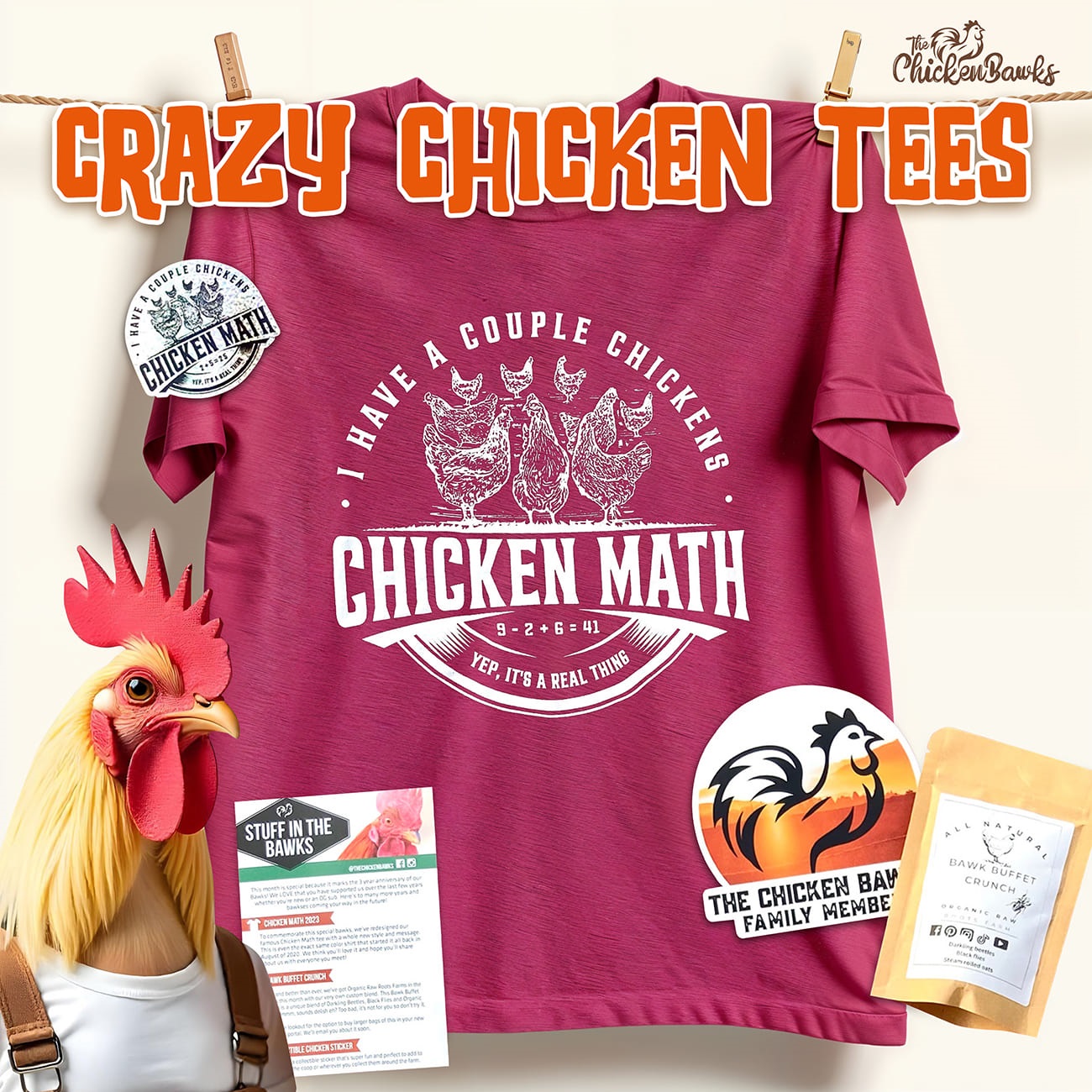Can Chickens Eat Fish? How To Feed Your Chickens Fish Safely
Learn about how to safely add this delicious and nutritious snack to your hens’ diet.
In this
article, we’ll cover whether chickens can and should eat fish, what the
benefits and risks of feeding it all, and the best practices for feeding fish
to your chickens.

Chickens in pop culture are mostly fed on a diet of corn and/or grain, so many new chicken owners are surprised at the wide variety of foods chickens can and do eat in real life. Many breeds love to forage for their own snacks, including insects, grasses, flowers, leaves, fruits, and vegetables – as anyone who has ever had a flock of hens break into their garden can attest! However, these aren’t the only things chickens can, do, or should eat. In this article, we’ll discuss the pros and cons, dos and don’ts of feeding fish to your chickens.
Can chickens eat fish?
Yes! Fish is usually safe for chickens to eat, as long as a few precautions are taken. Chickens can eat fish cooked, raw, whole, chopped, boned, deboned – they aren’t picky. One thing to avoid is feeding them leftover fish off your dinner table, since lots of the spices and sauces that make fish delicious to humans makes it less safe and healthy for chickens. Canned or highly processed fish products should also be avoided, as they can contain chemicals and preservatives that aren’t healthy for your chickens.
Should chickens
eat fish?
Fish isn’t a required part of the chicken diet by any means, and rest assured that your hens will grow up happy and healthy even if you elect never to feed them fish. However, fish can also be a great treat and a way to add variety to their diet. Chickens, like humans, will quickly grow bored of eating the same thing day after day, and it’s also healthier for them in the long run to have a more varied diet with lots of different sources of protein and nutrients. Especially if your birds can’t supplement their diets through foraging, giving them fish is a great way to get them the protein they need and the variety they crave.
One thing to keep in mind when thinking about chickens and fish is that fish shouldn’t and can’t make up the main component, or even a main component, of the flock’s diet. A commercial layer feed will have all the nutrients they need for a balanced diet, mixed in the right proportions to be safe and nutritious for your hens. Fish should be an occasional supplement, not a major source of nutrition or calories. Too much high-protein fish can actually cause problems for your birds, as too much protein in their diets can cause obesity and kidney issues in chickens. With nutrition, more isn’t always better, and moderation is essential.
What are the benefits of feeding fish to my chickens?
Besides the fact that they love it, the main benefit of feeding fish to your chickens is that fish is very rich in protein and other nutrients that your chickens need to stay healthy and, crucially, produce healthy eggs. Fish, especially when fed whole, can provide your hens with large amounts of calcium, which is critical for laying hens who need to produce multiple healthy, sturdy egg shells per week. The traditional source of calcium for hens is to offer them calcium carbonate, in the form of ground oyster shells, which is free fed separately from their regular food. This is still a good option and the best way to make sure your hens are regularly getting the calcium they need, but fish are a great supplement, especially when fed whole, with the bones still in.
Fish are also, obviously, a major source of protein for chickens, as well as a potential source of a variety of nutrients, vitamins, and minerals. Fish are also chock full of Omega-3 fatty acids, which help prevent heart disease and even neurological conditions. Adding all these things to their diets promotes your hens’ general health, strengthens their immune systems, and even prevents diseases, ranging from coccidiosis to auto-immune conditions.
What are the risks?
One of the risks of feeding your chickens fish is that fish can contain high levels of mercury. According to everythingfishkeeping.com this is more likely with certain species that are near the top of the food chain. As with humans, ingesting large amounts of mercury can make your chickens ill. However, because chickens are so much smaller than humans, and because of differences in their digestive tract, even small amounts of mercury can be quite dangerous and even deadly to your hens. Avoid fish that tend to be high in mercury, like tuna, marlin, swordfish, and king mackerel.
Another, smaller risk of fish consumption for chickens comes from the bones. Chickens can and will eat fishbones whole, and for the most part, they won’t have trouble digesting them. They can even be a good source for additional calcium. However, large or broken fishbones can be a choking hazard or worse, cutting up your chickens’ mouths and digestive organs. Remove large or particularly sharp bones before feeding, and keep an eye on your chickens whenever they eat fish with bones in.
The last risk to consider is that especially fatty fish, including some popular species for humans, like salmon and herring, can be dangerous for your chickens. Just like with humans, too much fat can be bad for chickens and their health, and, as we discussed with mercury, because chickens are so much smaller than humans, it takes a much smaller amount of a dangerous thing, like a toxin or, in this case, fat, to do serious damage. In addition to leading to obesity in your hens, which has its own risks and potential complications, feeding fatty fish can lead to a number of other health problems, including the alarmingly named Sudden Death Syndrome, which is believed to be caused by heart problems and stress.
What fish should I give to my chickens?
Most fish that are safe for humans to eat are also safe to feed to your chickens. However, fish that are high in mercury, fats, and protein, as discussed above, should be avoided. Additionally, some preparations of fish, like those that have been processed or canned, may have toxins or unhealthy additives in them, and anything that has been seasoned will be unhealthy for your birds. See the chart below for a rundown of what fish you can and can’t feed your hens.
Good fish to feed to chickens:
- Bass
- Catfish
- Cod
- Cooked fish
- Dried fish
- Haddock
- Halibut
- Pollock
- Raw fish
- Sardines
- Sunfish
- Tilapia
- Trout
- Whole fish
Fish to avoid:
- Barramundi
- Canned fish
- Gemfish
- Herring
- King Mackerel
- Ling
- Marlin
- Orange roughy
- Salmon
- Seasoned fish
- Shark
- Swordfish
- Tilefish
- Ray
How often should chickens eat fish?
Fish should be seen as a treat or supplement to the regular chicken diet, not a mainstay of it. Most of your birds’ nutrients and calories can and should come from a commercial layer feed, which will be specially formulated to meet all of your hens’ nutritional needs without going overboard on things like fats and proteins. Regular treats will keep your birds healthy, happy, and engaged, though, and it’s in this context that you can give your girls fish - but no more than once a week at most.
To sum it all up, can chickens eat fish? Yes! Not only do they love it, but when fed safely, it’s great for their health as well. If you give your chickens fishy treats, they’re sure to have a whale of a time.
What can we help you find? Search the website:
What's New Around Here?
-
Madoc Poultry Club Summer Show
Information on the Madoc Poultry Club Summer Show -
FL - 2 pullets and 1 cockerel Modern Game chickens
Hi, my daughter hatched the three Modern Game Chicks. need to sell as she already has 8 other chickens of various breeds. I have 2 pullets and 1 cockerel -
Wanted: Female Whooper Swan
Call or text: 740-359-3913










